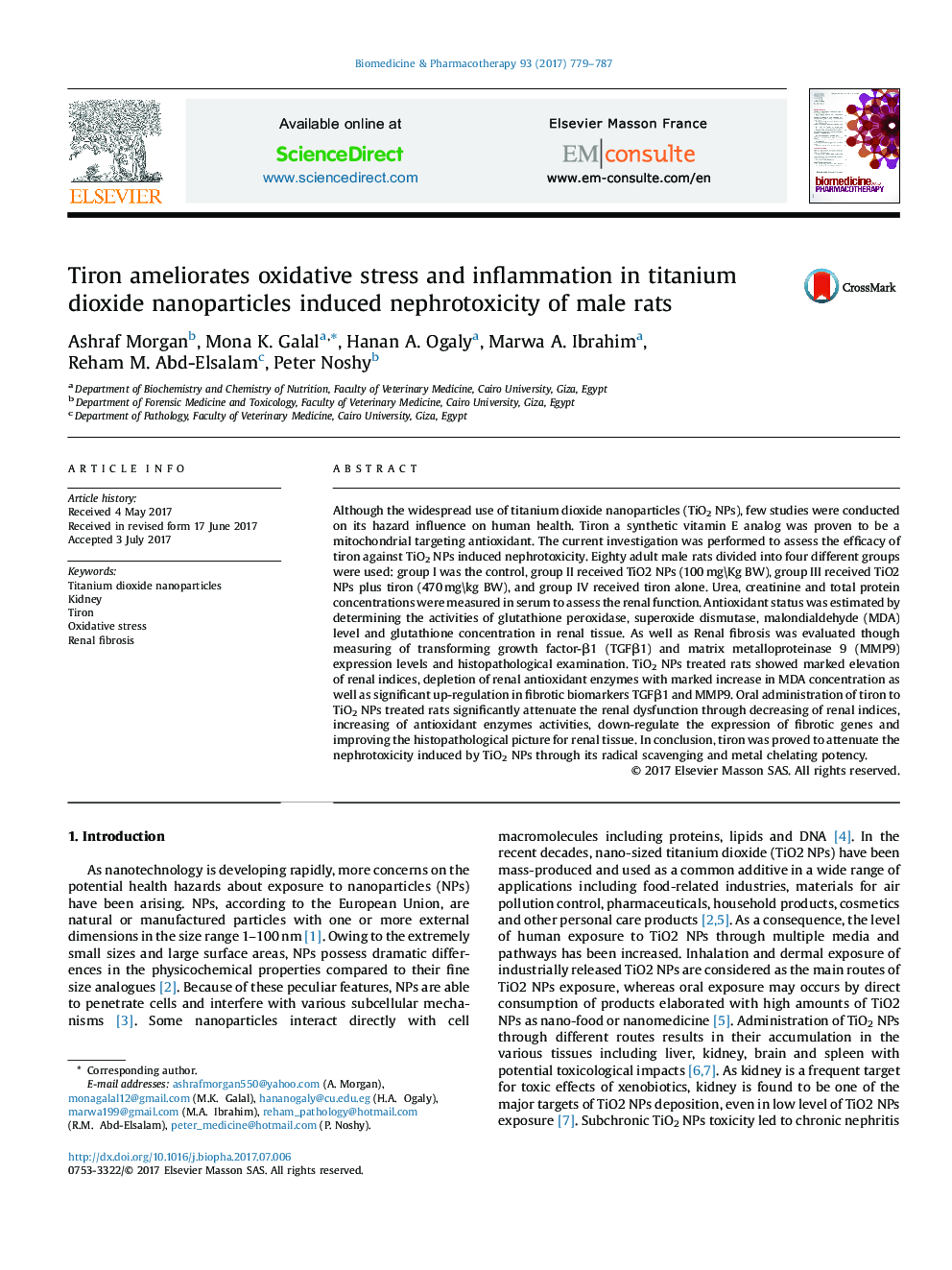| Article ID | Journal | Published Year | Pages | File Type |
|---|---|---|---|---|
| 5552686 | Biomedicine & Pharmacotherapy | 2017 | 9 Pages |
Although the widespread use of titanium dioxide nanoparticles (TiO2 NPs), few studies were conducted on its hazard influence on human health. Tiron a synthetic vitamin E analog was proven to be a mitochondrial targeting antioxidant. The current investigation was performed to assess the efficacy of tiron against TiO2 NPs induced nephrotoxicity. Eighty adult male rats divided into four different groups were used: group I was the control, group II received TiO2 NPs (100 mg\Kg BW), group III received TiO2 NPs plus tiron (470 mg\kg BW), and group IV received tiron alone. Urea, creatinine and total protein concentrations were measured in serum to assess the renal function. Antioxidant status was estimated by determining the activities of glutathione peroxidase, superoxide dismutase, malondialdehyde (MDA) level and glutathione concentration in renal tissue. As well as Renal fibrosis was evaluated though measuring of transforming growth factor-β1 (TGFβ1) and matrix metalloproteinase 9 (MMP9) expression levels and histopathological examination. TiO2 NPs treated rats showed marked elevation of renal indices, depletion of renal antioxidant enzymes with marked increase in MDA concentration as well as significant up-regulation in fibrotic biomarkers TGFβ1 and MMP9. Oral administration of tiron to TiO2 NPs treated rats significantly attenuate the renal dysfunction through decreasing of renal indices, increasing of antioxidant enzymes activities, down-regulate the expression of fibrotic genes and improving the histopathological picture for renal tissue. In conclusion, tiron was proved to attenuate the nephrotoxicity induced by TiO2 NPs through its radical scavenging and metal chelating potency.
